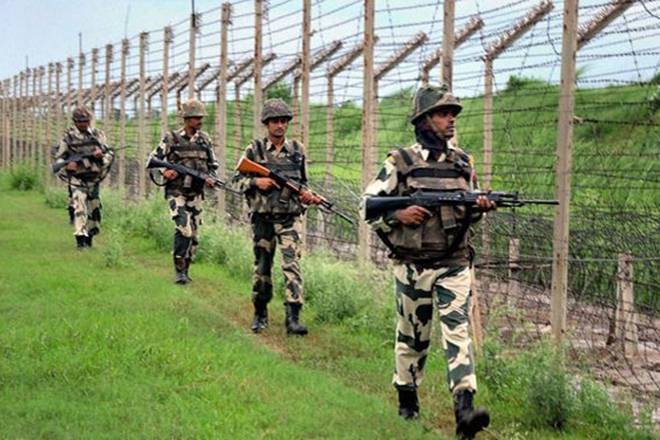
Centre's power stretch: BSF can search, seize, arrest in Bengal, Assam, Punjab

In what could possibly trigger another round of state-Centre tussle over deployment of central forces in states, the Home Ministry has extended the jurisdiction of the Border Security Force (BSF) across 50-km stretch of India’s border in West Bengal, Punjab and Assam, empowering its officers with powers on par with state police including the powers to arrest, conduct raids and seize.
The earlier stretch was just 15 km in the said states.
According to reports, in the latest notification issued by the Union Home Ministry on Monday, the BSF’s stretch of jurisdiction along the Indian border in Gujarat, however, has been slashed to 50 km from an earlier 80 km, while the same in Rajasthan stays constant at 50 km.
The BSF, hasn’t been given any such limit in the other border states of Nagaland, Meghalaya, Mizoram, Tripura, Manipur and the Union territories of Jammu and Kashmir and Ladakh.
The Centre, at regular intervals, invokes Section 139 of the Border Security Force Act, 1968 to announce the extent of area where the security force can exercise its jurisdiction.
In the latest notification, the ministry has revised the ‘schedule’ of border stretch where the BSF would have powers to search, seize and arrest under legislations like Passport Act, NDPS Act, Customs Act and the Criminal Procedure Code in Manipur, Mizoram, Nagaland Tripura and Meghalaya as well as Jammu and Kashmir and Ladakh. The stretch of the border has also been extended to a 50-km belt in Gujarat, Rajasthan and Punjab.
The ‘scheduled’ area under earlier notifications (September 22, 1969; June 11, 2012 and July 3, 2014) comprised the Indian border along Mizoram, Manipur, Nagaland, Tripura, Meghalaya and Jammu and Kashmir, the 80-km belt in Gujarat, another 50-km belt in Rajasthan, and 15 km each in Assam, Bengal and Punjab.
The extension in the jurisdiction of the BSF, which is controlled by the Centre, in the non-BJP states of Bengal and Punjab is likely to create friction between the Centre and the state governments.
While it has not been verified if the decision was taken by the Centre after consultation with the state governments of Assam, West Bengal and Punjab, it is imperative for the central government to table the order – made under Section 139 of the BSF Act – before the Parliament which has the power to modify or scrap it.
The BSF, one of India’s five Central Armed Forces, was formed in 1965 following the Indo-Pakistan war, to secure the borders of the country. The BSF, directly reports to the Union Ministry of Home Affairs.


